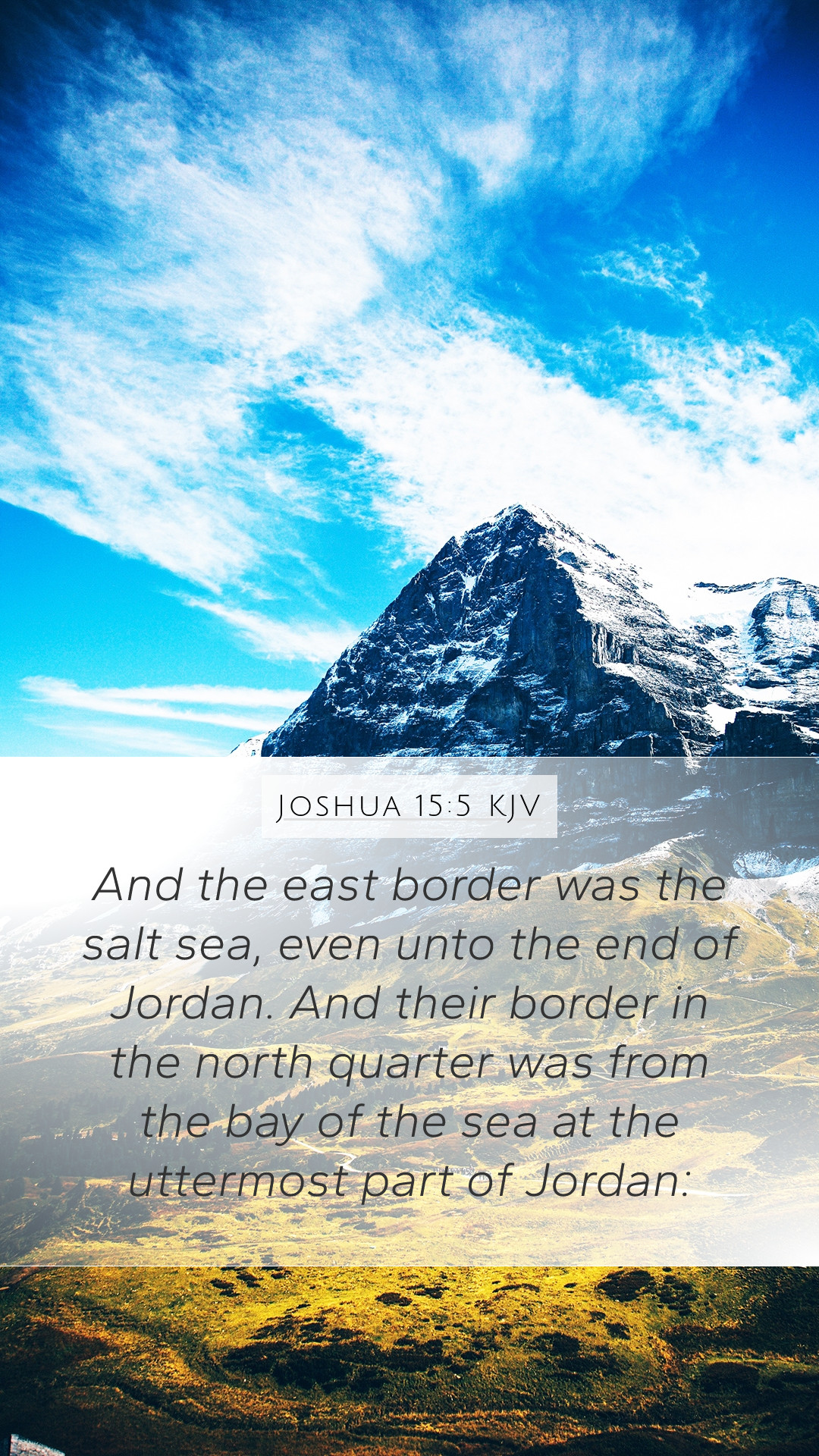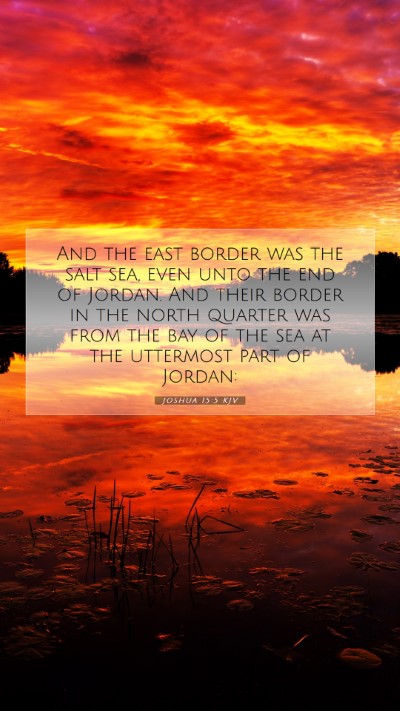Bible Verse Explanation: Joshua 15:5
In this exploration of Joshua 15:5, we delve into the broader context and meaning of this verse using insights from public domain commentaries. Understanding Scripture is enhanced through careful analysis and interpretation, which is crucial for those seeking in-depth knowledge of the Bible.
Context of Joshua 15
The book of Joshua recounts the history of the Israelites as they enter and possess the land of Canaan, fulfilling God's promise to give them this land. Chapter 15 focuses specifically on the inheritance of the tribe of Judah, detailing the borders and cities that were allotted to them.
Text of Joshua 15:5
The verse states: "And the east border was the salt sea, even unto the end of Jordan; and this was the inheritance of the children of Judah round about according to their families."
Interpretation Breakdown
-
Geographical Significance
Matthew Henry notes that the east border mentions the Salt Sea (often identified as the Dead Sea), marking a significant geographical landmark. This emphasizes the nature of the land assigned to Judah and serves as a fixed point of reference for understanding the territory's dimensions.
-
Inheritance as Divine Promise
Albert Barnes highlights the theme of inheritance throughout this chapter, where the land given to Judah symbolizes not only a physical possession but also the fulfillment of God’s covenant promises. The allotment embodies the blessings promised to the twelve tribes of Israel.
-
Family Structure and Division of Land
Adam Clarke emphasizes the importance of family units within the tribes, illustrating how land was allocated according to family lines. This tradition underscores societal organization and God’s design for community living.
Theological Themes
This verse embodies several key theological themes relevant to Bible study insights:
- Divine Sovereignty: The Lord facilitates the division of lands, underpinning His control over the affairs of nations.
- God's Faithfulness: Judah's inheritance is a testament to God's unwavering faithfulness to His promises.
- Community and Family Importance: The verse illustrates God’s design for familial and communal identities within His covenant people.
Application for Today
Understanding this passage offers valuable lessons for contemporary believers:
- Recognizing God’s Promises: Just as Judah received their inheritance, believers are encouraged to trust in God’s promises for their lives.
- Community Engagement: The emphasis on families draws attention to the importance of community and fellowship within the body of Christ.
- Awareness of Heritage: Christian faith is rooted in historical traditions, advocating the importance of understanding one's spiritual heritage.
Related Scripture References
- Numbers 34:2-12 - Details the boundaries of the land to be possessed.
- Deuteronomy 3:12-20 - Discusses land allocation to the tribes of Israel, including references to the tribe of Judah.
- Joshua 18:1-10 - Continues the narrative of land distribution among other tribes, correlating with Judah's inheritance.
Conclusion
Joshua 15:5 serves as a profound illustration of God’s faithfulness and the organizational structure of inheritance within the tribe of Judah. For those involved in online Bible study, this verse provides a rich ground for understanding the significance of divine promises and community relationships.
As you delve deeper into Scripture analysis, remember that each verse carries weight, contributing to the holistic understanding of God's word. This insight is particularly valuable for Bible study groups and personal Bible study plans.


